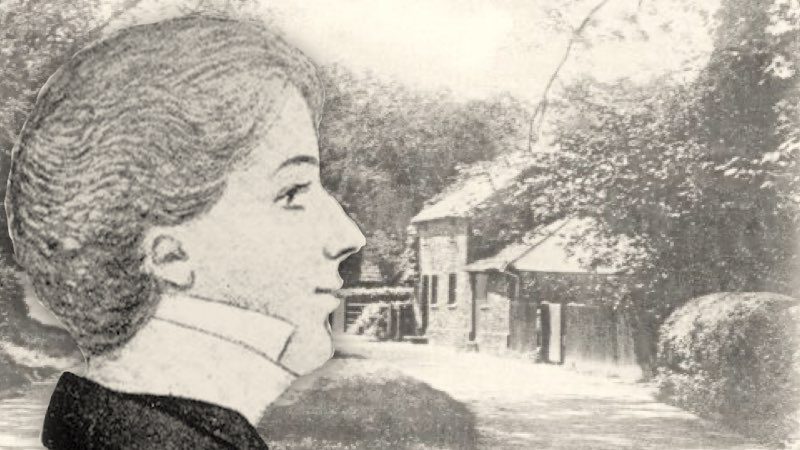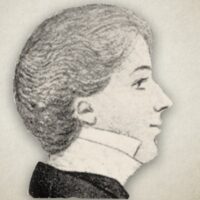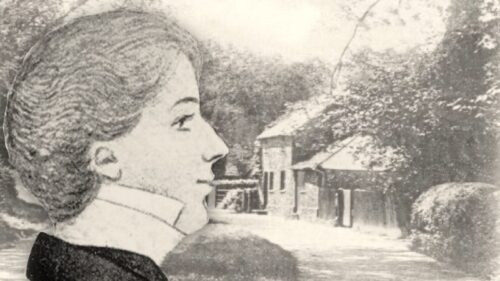
Unvarnished Language
June 9, 1830
My dear Brother,
I rejoice to say that the Lord still continues to bless the word preached by me. As He is pleased to lead me into deeper mysteries of His blessed gospel, I can more fully show forth the errors of false authors and ministers, which consequently causes me to be more hated and despised by a false professing world. There has been a book published called “The Calm Observer,” in answer to my sermon. The Christian Remembrancer, of the month of April, reviewed it, and has borne a strong testimony in favor of it, by not answering any of its arguments, but by heaping upon me sordid abuse. But even the enemies of the gospel are sorry it has been so reviewed, as abuse is well known to be generally bestowed when arguments to prove the truths of the gospel erroneous are lacking.
As you have, perhaps, not seen the work, I will give you two or three extracts—”The harangue which Mr. Tiptaft has published, under the title of a sermon, is the veriest trash, and most bombastic nonsense which ever proceeded from the lips of one who hopes to escape Bedlam; nevertheless it has excited a considerable sensation in the University of Oxford,” etc. (Page 211.)
“We really have no patience to proceed further with such perversions of the Scripture. None but those who are as bad as himself will be easily led to adopt his notions. It is but justice to Mr. Parker, the Oxford bookseller, to state that his name was inserted in the title page without his permission, and that he would never have sanctioned the publication, directly or indirectly, of such profane blasphemy.” This will enable you to form a judgment of the review, which does not attempt to refute the doctrines. It is very remarkable that such a fool as they say I am should excite a considerable sensation in the great and learned University of Oxford.
I am called mad; so was Christ. I am called a blasphemer; so was Christ; and Christ says, “The servant is no greater than his master.” Bulteel has gone to see his friends. I preached for him at Oxford to a very crowded church. Many came to hear what ‘the babbler’ had to say. There were present to hear me from this place and the neighborhood not less than 60 or 70 of my regular hearers. Of course they were considered fools for going so far to hear such a fool, whom they can hear three times every week. I preached from Col. 2:19, extempore, without any premeditation. I looked to the Lord, and He gave me words, and I was enabled to utter ‘foolish things’ to confound the wise. I cut down false religion, and exalted Christ, to the great offence of the pious Pharisees. If the learned gownsmen could not digest what I said (there were many present), I was enabled by the grace of God to feed “the poor of the flock, who knew that it was the word of the Lord.” Flesh and blood are not changed, and where the gospel is faithfully preached there will be the same consequences as in the time of our Savior and the apostles.
I am to preach for Bulteel next Sunday also. I am more offensive in my preaching than he is; I do not try to smooth it and make it palatable. I speak, as Mr. Hewlett says, “in plain and unvarnished language,” and not with enticing words of man’s wisdom. I like your last letter better than the former one. My advice to you is to keep close to the Bible. Let no one set up a standard for you; and if you are a child of God you will be taught by the Spirit. Do not cavil and reason with the carnal-minded. What advantage will it be if you persuade them to adopt your sentiments? If they are not born again of the Spirit of God, they will receive the doctrines carnally and not spiritually, which will only make them proud and licentious.
I wish you sat under the sound of the blessed gospel. You will find ‘free-will’ texts to harass and trouble the minds both of you and your wife. Don’t be distressed on that account; difficulties will vanish as the Lord teaches. You cannot expect to reconcile all the Bible at once; the devil and his children will try to confound you. If you are children of God, the grace of God will teach you to deny ungodliness and worldly lusts, and to live soberly, righteously, and godly in this present world.
Yours affectionately in the bonds of the gospel,
William Tiptaft
William Tiptaft (1803-1864) was a Strict and Particular Baptist pastor. In 1831, he oversaw the construction of a chapel in Abingdon, where he remained as the Pastor until his death. John Hazelton wrote of him—
“William Tiptaft…exercised a ministry largely used to the awakening of sinners and to the driving of those who had only a name to live from the false confidences in which they trusted.” Joseph Philpot wrote of him—“He seemed ever ready to make any personal sacrifice for the glory of God or the good of His people. Time, money, health, strength, life itself, he did not consider his own. He felt he was but a steward who held them in trust, and who might be called at any hour to render an account of his stewardship. To live to God, to walk in His fear, to serve and please Him, to preach His truth, to do His work, to know and obey His will, and to be made a blessing to His people, seemed to be his daily end and aim. I have known men of greater natural abilities, of deeper and more diversified experience, of more shining pulpit gifts, of more enlarged views of Divine truth; but I have never seen anyone, whether minister or private Christian, who approached him in his own peculiar line of practical Godliness, carried out with undeviating consistency for the thirty-five years during which I had the pleasure and profit of his friendship. The Churches of truth needed an example of the practical power of the doctrines which they profess. A light, loose, Antinomian spirit had too much prevailed, and with a great deal of religious talking there was a very small amount of religious walking. But however low quickened souls or living Churches may sink, they have still a conscience made tender in the fear of God, and to this conscience William Tiptaft's keen, pithy remarks, and, above all, his Godly life and shining example, commended themselves."
William Tiptaft's Letters




